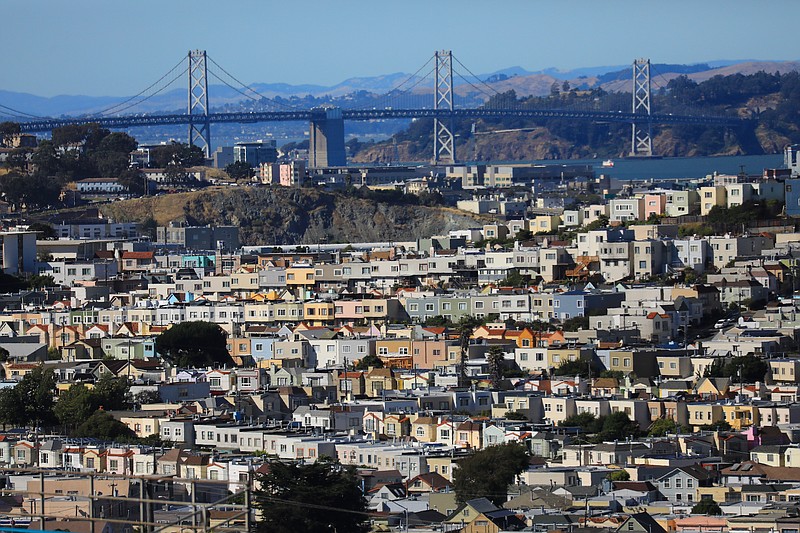It's beyond laughable that a one-bedroom apartment can sell for $1.5 million in San Francisco - and get multiple offers within a day. Or that dumpsters sport satirical "for rent" signs.
But the latest assessment of the out-of-reach quality of one of the world's great places to live came as a real jolt:
A family of four earning $117,000 is now classified as low income in the San Francisco area. This threshold, used to determine eligibility for federal housing assistance, is the highest in the nation - and no surprise.
Once upon a time in the American West, the most exclusive places - Sun Valley, Aspen, Lake Tahoe, the San Juan Islands in Washington state - were known as "Golden Ghettos," an imperfect term used by trendy demographers.
But now the entire West Coast, from San Diego to Vancouver, British Columbia, is a string of gilded megalopolises. These are the tomorrow cities, the tech cities, the cities of the young and educated. And each of them is struggling with a prosperity crisis that threatens the very nature of living there.
A New Yorker would say, so what, get used to paying through the nose to live in a tiny space on limited land - Manhattan, Brooklyn and now Queens have seen it all. But people on the West Coast, perhaps naively, are not ready to say, "Fuhgeddaboudit." Not yet. With varying degrees of success, they are fighting for the soul of their cities.
"Walking the streets of San Francisco can be a frightening, demoralizing, even unhealthy experience for residents and tourists alike." This comment came from the woman just elected mayor of San Francisco, London Breed.
Raised in poverty, and the first African-American chosen to lead the city, Breed has vowed to remove homeless encampments within a year. There is nothing compassionate or financially sound in spending $250 million a year on homeless services that still leaves thousands sleeping on the street.
In order to do the other thing that Breed wants to do, build more housing of all kinds, she has to secure the social contract. That is: Can people accept more crowded neighborhoods, in a city that is already the second most densely populated among big cities in the nation, if they feel that elected leaders do not have a decent plan - or a clue?
As Breed notes, San Francisco has created only one home for every eight new jobs between 2010 and 2015. She may not be ready to utter a hard truth that some residents already have: that not everyone who wants to live there can.
In Seattle, the nation's fastest-growing city for this decade, the social contract is nearly broken. The city used to be run by creative problem solvers. Now, an ideologically driven City Council dreams up new things to anger residents while seeming to let the homeless have the run of the place.
The latest backward move was a tax on jobs - quickly repealed after a citizens' revolt. While the council was trying to target Amazon, the city's biggest private employer, the tax would have also hurt grocery stores and family-run businesses, as if they caused the homeless crisis and spike in real estate.
An unholy alliance of socialists and developers threatens to destroy the city's single-family neighborhoods with a major upzoning - further disrupting trust between residents and politicians. If the intent is to make Seattle more affordable, this approach has failed. The city has built more new units of housing over the last five years than in the prior half-century. And yet Seattle continues to lead the nation in home price increases.
We need a new urbanism. For all the grumping about how great the cities facing the Pacific used to be, they can be greater still if the bright minds now trying to "disrupt" a grilled cheese sandwich can focus on the biggest challenge of this generation. We know what doesn't work. The task is to find a creative mix of solutions that do.
The New York Times
